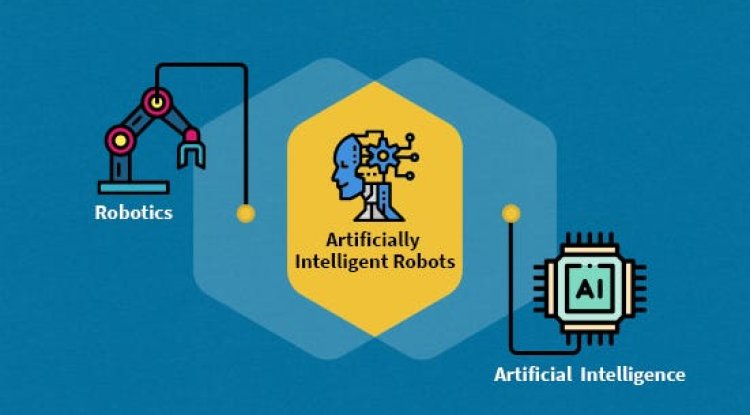Explore top universities, internships, and career paths in Cybersecurity and Digital Transformation in Germany. Build a future-ready career with ACHIVIA’s expert guidance.

Germany has always been recognized worldwide for its precision — from engineering marvels to leading research institutions. In recent years, this precision has accelerated into a new era: digital innovation. With a major focus on artificial intelligence, data protection, and cybersecurity, Germany is investing heavily in becoming a global leader in digital transformation.
For students and professionals aiming for future-ready careers, Germany offers more than just academic programs — it acts as a gateway toward some of the most exciting job markets of tomorrow. This blog highlights why Germany stands out as a hub for Cybersecurity and Digital Transformation, covering top universities, internships, scholarships, career opportunities, and industry partnerships.
Why Germany is Leading the Digital Revolution
Germany’s ambitious Digital Strategy 2030 focuses on modernizing industries, bolstering data security, and embedding smart digital technologies across every sector. This strategic push drives high demand for skilled professionals in:
- Cybersecurity
- Data Science
- Cloud Computing
- Digital Systems Management
Industry reports from Bitkom, Germany’s leading tech association, reveal over 100,000 unfilled IT roles, many in cybersecurity and digitalization, meaning graduates in these fields are stepping directly into well-paid, high-demand jobs.
For anyone passionate about securing digital systems or driving business through technology, Germany offers ideal conditions to study and advance a successful career.
Study Opportunities and Facilities
-
Top Universities Leading in Cybersecurity & Digital Innovation
Germany boasts globally renowned universities combining research excellence, practicable coursework, and affordable tuition — often free for international students. Leading institutions include:
- Technical University of Munich (TUM): Specializes in IT Security, AI, and Data Engineering.
- RWTH Aachen University: Known for Electrical and Information Technology programs.
- University of Bonn: Offers a top-ranked M.Sc. in Cyber Security in partnership with the Fraunhofer Institute.
- TU Darmstadt: Home to the ATHENE National Research Center for Cybersecurity.
- University of Passau: Focuses on Digital Transformation in Business and Society.
-
Cutting-Edge Facilities & Research Centers
Universities and research institutes in Germany invest heavily in state-of-the-art facilities:
- Cyber labs and cyber ranges simulate real-world cyberattacks to train students in defense tactics.
- Digital Innovation Labs foster collaboration between students, startups, and industry leaders like Siemens, Bosch, and Deutsche Telekom.
- Fraunhofer Institutes partner with universities, giving students hands-on experience in national-level security projects.
-
Language and Program Options
While Germany is widely known for its German-taught programs, the rise of global tech education has led to the rise of many English-taught master’s degrees in Cybersecurity, Digital Transformation, and Data Analytics.
Most of the universities offer free German language courses, helping students integrate more effectively into local work environments after graduation.
Click here to register for German language courses
There is a well-known saying, “Precaution is better than cure”. Learning German beforehand can help students avoid potential language and cultural barriers while studying and living in Germany. Being familiar with German not only makes daily life easier but also gives students an edge when applying for part-time jobs, internships, or full-time roles after graduation. ACHIVIA’s German Language Training equips students to communicate confidently and settle smoothly in Germany.
Start smart — join ACHIVIA’s German Language Program today and prepare yourself for a seamless study and career experience in Germany!
Internships and Industry Exposure
-
Integrated Internships
- Most master’s programs in Germany include an internship or research project.
- These last around 3–6 months and give students hands-on industry experience.
- Common employers include SAP, Siemens, Bosch, Deutsche Bank, and government bodies such as the BSI or Fraunhofer Institutes.
- Many internships lead the path to full-time job offers after graduation.
-
Industry-Academia Collaboration
- Germany’s dual education system connects classroom learning with real work experience.
- Students often work as Werkstudenten (working students) in fields such as cybersecurity, IT consulting, or digital auditing.
- These roles offer paid experience while you are studying.
- Cities such as Munich, Berlin, and Frankfurt offer many opportunities in AI, blockchain, and digital security startups.
Scholarships and Financial Support
Although tuition fees are minimal, living in Germany comes with additional expenses. Luckily, several scholarships make it easier for international students to focus on their studies.
- DAAD (German Academic Exchange Service) – Offers fully or partially funded scholarships for international master’s students.
- Erasmus+ – Supports exchange semesters and internships across Europe.
- University & Corporate Scholarships – Offered by universities and companies like Siemens, Bosch, and SAP.
These scholarships are not just about funding — they also connect students with professional mentors and exclusive networking opportunities.
Career Opportunities and Job Market
Germany’s economy is becoming increasingly digital, and demand for skilled cybersecurity professionals is rising at an unprecedented pace. Graduates from cybersecurity or digital transformation programs often land roles such as:
- Cybersecurity Analyst / Consultant
- Cloud Security Architect
- Digital Transformation Manager
- Ethical Hacker / Penetration Tester
- IT Risk and Compliance Officer
Entry-level salaries range from €55,000 to €70,000, and experienced experts can earn above €90,000. With a shortage of skilled tech talent, international graduates are highly sought after.
The Future of Cybersecurity and Digital Work in Germany
Research centers like CISPA, ATHENE, and Fraunhofer SIT are pioneering next-generation security technologies, providing students with chances to contribute to cutting-edge work.
Vibrant cities like Munich, Berlin, and Hamburg also boast thriving tech startups specializing in AI, data analytics, and automation, building the ideal environments for innovators and entrepreneurs.
Conclusion: A Smart Career Investment
Germany leads the way as a hub of digital excellence, integrating state-of-the-art innovation with pragmatic strategies. For students passionate about technology, problem-solving, and shaping the secure digital systems of tomorrow, a degree in Cybersecurity and Digital Transformation in Germany is not just a degree—it is a gateway to a global career.
With world-class education, abundant research opportunities, and strong industry connections, Germany offers more than just academic success—it offers a future.
What's Your Reaction?




















